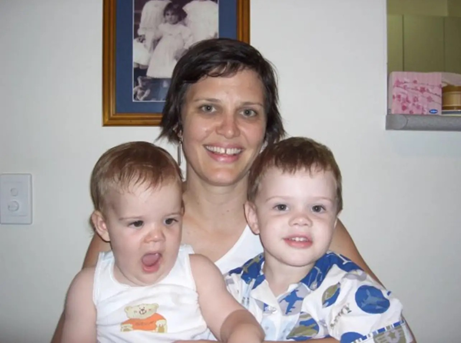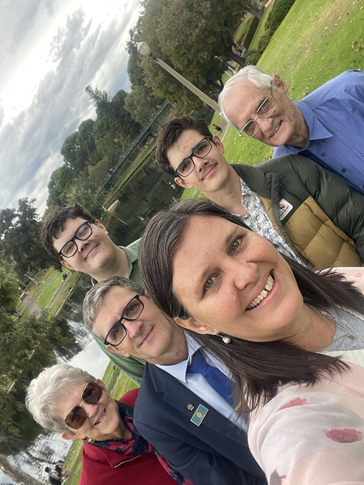South Australian Survivor Speaks Out - Stroke Doesn’t Wait, Neither Should You
Kylie Urlichs was just 34 years old and preparing for a quiet night of babysitting when a sudden, excruciating headache changed the course of her life.
It was 2009 when Kylie, then a busy mum to two toddlers, found herself in an alarming medical emergency while waiting to collect her friend’s children from a school excursion. What began as a strange pressure in her head quickly escalated to vomiting, slurred speech, paralysis, and eventually being rushed to hospital
with a pain level she described as “fifty out of ten!”.

“I walked just 30 metres to meet the kids when it felt like I’d been hit in the head with a cricket bat,” Kylie recalls. “I couldn’t bend my neck, I couldn’t talk properly, my face felt like leather – I knew something was really wrong.”
What Kylie didn’t realise at the time was that she was experiencing a subarachnoid haemorrhage, a type of stroke caused by bleeding on the brain. She was alone with her friend’s two children, aged 9 and 12, and had no idea she was in the middle of a medical emergency.
“By the time I’d called the ambulance and my husband, I’d already lost the ability to speak clearly,” she says. “I handed the phone to the 12-year-old and he calmly took over. I’ve always been so grateful to him.”
Kylie spent a week in intensive care and another on the ward, followed by three challenging months of recovery at home. While she was fortunate not to experience permanent disability, Kylie battled chronic pain for years and lived with depression for more than a decade.

StrokeLine (1800 STROKE) Stroke Foundation’s free and confidential support and information service was also there to support Kylie and her family through the difficult recovery journey.
Stroke Foundation CEO Dr Lisa Murphy said Kylie’s story is a powerful reminder that stroke can happen to anyone, at any time.
“More than 45,000 strokes will be experienced in Australia this year – that’s one stroke every 11 minutes,” Dr Murphy said.
“Too often people delay getting help because they don’t know the signs or think they’re too young to be at risk. Knowing what to look for and acting FAST can mean the difference between life and death, or lifelong disability.”
Now, 16 years on, Kylie shares her story to raise awareness that stroke can strike at any age, and recognising the signs early can save a life.
“I had no idea what was happening to me, and there were no adults with me who might’ve recognised the signs,” she says. “If more people knew what to look for, if I had known, I might have called the ambulance sooner.”
Kylie, now 50, lives in Mawson Lakes and works at a high school campus of the University of Adelaide. She’s fully recovered and living a full life but wants others to understand the urgency of knowing stroke symptoms.
“Stroke isn’t just something that happens to older people,” she says. “Don’t assume you’re too young – it could happen to anyone.”
Her message to others is simple: “Know the signs and you could save a life.”


